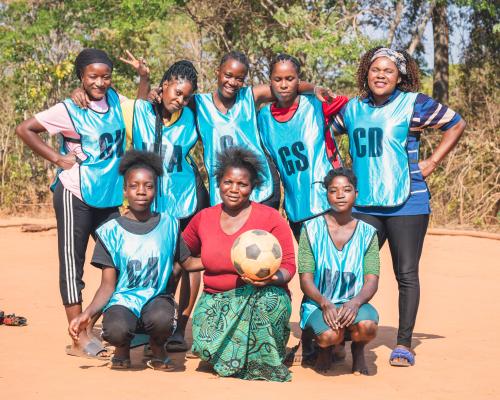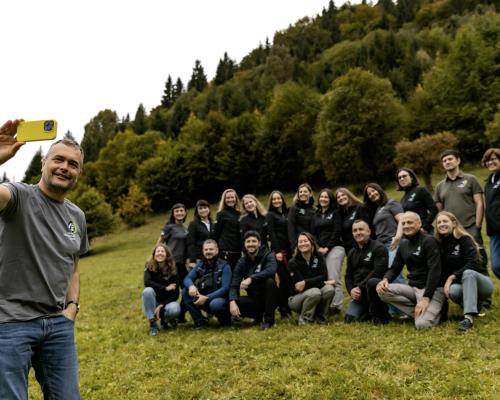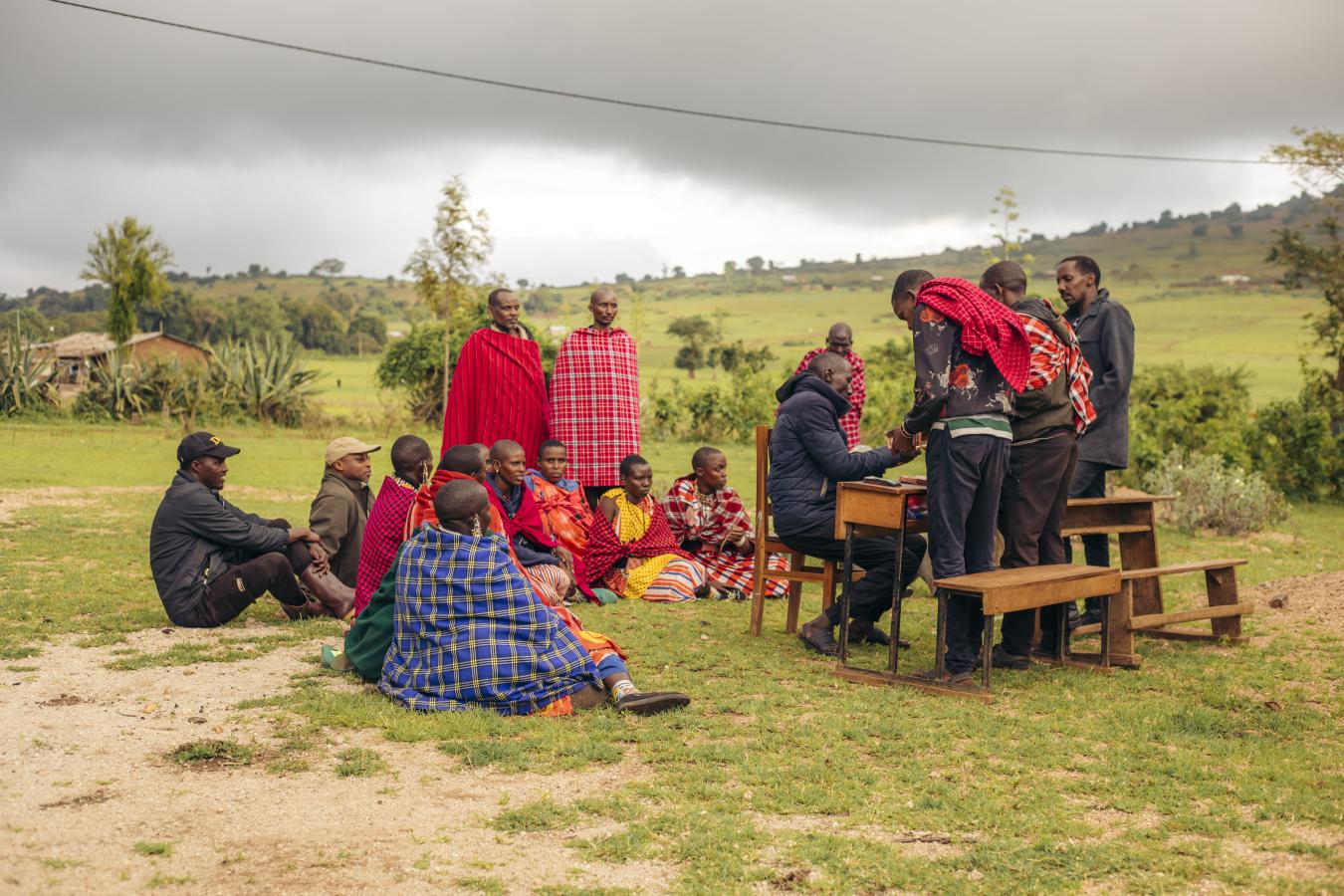
by Maurus Msuha, FZS Country Director, Tanzania
Here in Tanzania, nature is inseparable from people’s lives. Forests, rivers, and wildlife provide food, water, and income. That’s why we practice conservation together with local communities.
For those living in and around these areas, conservation is not abstract – it shapes access to land, resources, and opportunities. The challenges are growing: resources are scarcer, traditional ways of life are shifting, and demand for land, food, and water is rising. Addressing these pressures means linking conservation directly to community well-being.
Together with local communities, we put solutions into practice by establishing community conservation banks, improving sustainable farming and livestock practices, supporting communities in securing land rights, and protecting forests as long-term sources of water.
What matters most is that Tanzanians take the lead in shaping conservation – and for more than 60 years, FZS has stood alongside them.
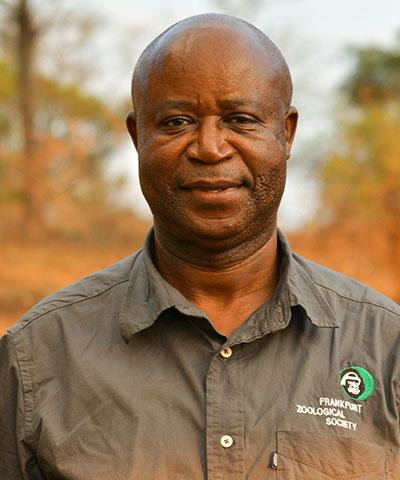
Our Tanzanian team has a personal stake in this work – as members of the very communities we serve, we share the challenges and the responsibility for building a sustainable future.
- Tanzania: Partnering with Communities for People and Nature
- Community Support
- Community Voices
- FAQ
- back to top
Engaging communities around protected areas is a cornerstone of FZS’s strategy, recognizing that lasting environmental protection depends on the well-being and active participation of local communities. In 2009, FZS piloted the Community Conservation Banks (COCOBAs) model in villages surrounding the Serengeti to support both conservation and livelihoods. These village-based savings and loan groups are fully self-managed and allow members, many of whom previously had no access to formal financial services, to collectively save and access low-interest loans. Members have used these funds for sustainable, small-scale businesses such as beekeeping, poultry farming, and tree nurseries. These activities diversify income-generating opportunities and reduce dependence on unsustainable natural resource use.
Today, 160 COCOBA groups support more than 4,000 individuals in improving their livelihoods, managing risks, and investing in their futures. In addition to financial support, many COCOBA members have reported a greater sense of community cohesion and decision-making power, especially among women, who make up a large share of active members. These local institutions also empower members to engage in other development activities, building resilience, supporting education, and fostering voluntary conservation efforts from within the communities themselves.
In the Loliondo Highlands, Frankfurt Zoological Society (FZS) works with local communities to protect forests that serve as vital water sources for both people and wildlife. These forests feed the Grumeti River, which provides year-round water to people, wildlife, and livestock across the Serengeti ecosystem.
FZS helps communities establish community-based forest trusts to manage their own forest reserves, such as Sariani and Enguserosambu, through participatory forest management, and supports sustainable livelihoods like beekeeping and livestock health services.
FZS also supports the training of Village Forest Guards – trusted local stewards who help safeguard forest health. Their work not only protects water resources, but also provides meaningful employment and strengthens community leadership in managing natural assets.
These efforts reduce pressure on natural resources while reinforcing local ownership of conservation.
Rangelands in northern Tanzania are critical to families who depend on livestock for their livelihoods. FZS works with pastoralist communities to restore and protect rangelands that sustain livestock and reduce pressure on wildlife. Healthy rangelands mean healthier animals, stronger livelihoods, and reduced pressure on forests and protected areas. However, droughts, intensive grazing, and expanding land-use change have degraded many of these grasslands, threatening livelihoods and ecological balance.
Since 2020, FZS has partnered with the Ngorongoro District Council and local leaders to develop rangeland rehabilitation approaches using a mix of traditional knowledge and practical techniques.
These efforts are community-led and designed to build resilience. FZS supports community-led governance strengthening, developing sustainable grazing plans, awareness campaigns, training sessions, and infrastructure improvements like cattle dips, which help reduce livestock disease and improve herd health.
Securing land rights is not only essential for long-term stability and development — it’s also critical for effective conservation. By clarifying land boundaries and reducing disputes, land-use planning helps communities invest confidently in their future while also protecting key habitats. It enables local leaders to shape development programs that align with conservation goals and community needs.
Since 2016, we have supported participatory village land-use planning in the Serengeti, Tarime, Bariadi, Bunda, Busega, Itilima, and Meatu districts, working with local governments and village leaders to help families gain legal ownership of the land they live and work on.
At the household level, over 9,000 families have received Certificates of Customary Rights of Occupancy (CCROs) since 2022. When communities have secure land rights, they are better able to use the land for economic investments, participate in conservation, manage resources responsibly, and contribute to the long-term coexistence of people and wildlife in the Serengeti.
In the Serengeti, where people and wildlife share the same landscapes, conflicts can arise when elephants raid crops or predators attack livestock. To help communities live safely alongside wildlife, the Frankfurt Zoological Society (FZS) has launched a series of practical and community-driven solutions. These include building predator-proof livestock enclosures (bomas), training local community task forces to safely deter elephants using non-lethal tools like torches, chili bombs, and Roman candles, and providing rapid-response vehicles to reach sites of human-wildlife conflict quickly. In partnership with local authorities, FZS has also established a digital monitoring system to track the movements of lions in real time, helping prevent incidents before they happen.
But our work goes beyond emergency response. A major part of our strategy involves helping communities plan how land is used to reduce conflict and promote coexistence. We support participatory mapping to identify areas for grazing, farming, and wildlife movement, ensuring that people and animals have space to thrive and coexist. By working with communities to balance human needs with conservation priorities, FZS is building long-term solutions that protect both livelihoods and wildlife.
Environmental education is central to building long-term conservation mindsets. FZS supports school-based programs, wildlife clubs, and community outreach to help people – especially youth – understand how nature supports their daily lives. In Tanzania, we work with local educators and partners to create materials in Swahili, support eco-club activities, and organize visits to national parks for students who have never seen wildlife up close. These efforts help foster pride in local ecosystems and build a generation of future stewards equipped with knowledge and curiosity about the natural world.
Frankfurt Zoological Society (FZS) supports collaborative units in the Serengeti that bring together experienced rangers and local community members – many of whom once relied on bushmeat hunting for income.
Drawing on their deep bush knowledge, these groups patrol key areas of the national park to locate and remove illegally placed wire snares, helping to reduce poaching and protect wildlife.
By turning former hunters into wildlife guardians, the initiative provides paid employment, valuable new skills, and a sense of purpose rooted in conservation. This approach not only strengthens relationships between communities and park authorities, but also builds trust, supports law enforcement efforts, and shows how conservation can create meaningful opportunities for people while safeguarding nature.
Through programs like COCOBA, community-based ranger teams, human-wildlife coexistence monitoring and environmental education, FZS creates opportunities for local residents, especially women and youth, to take on active roles in conservation and community development. Whether accessing loans to start small businesses, receiving vocational training, or becoming forest stewards, these groups are gaining visibility, confidence, and leadership experience—shaping the future of conservation in their own communities. This focus not only addresses gender and generational equity but also strengthens the long-term sustainability of conservation efforts.
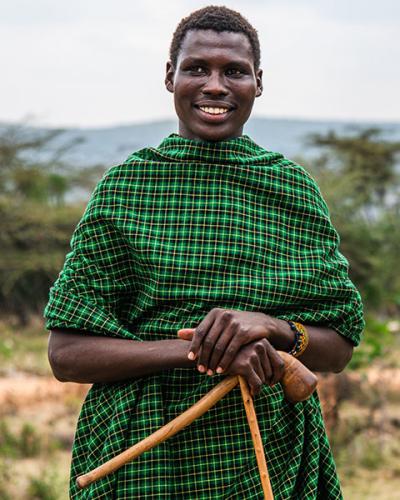
Joining COCOBA as a youth and through all these trainings, I have learned new skills to start a business. We don’t need to leave for the city, we can create opportunities here at home.
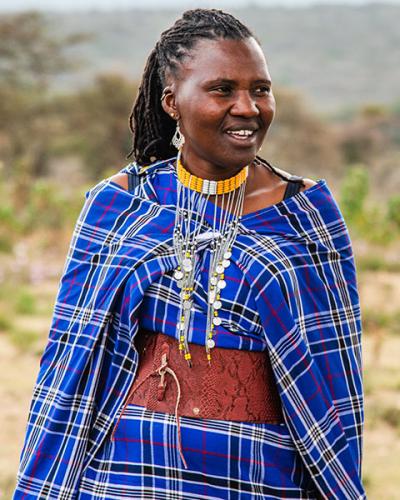
When women earn income, they also gain a voice. I see women becoming leaders in community projects and conservation. My hope is to see these businesses grow so that women can teach and inspire others.
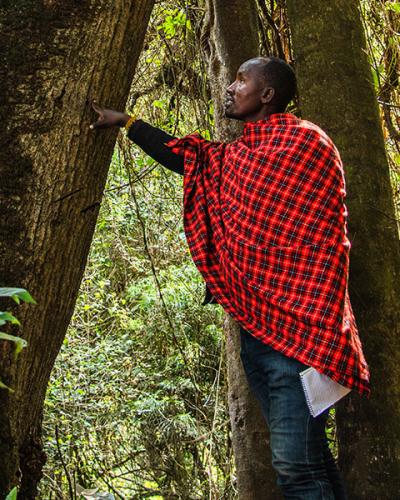
The forest is life for both people and animals. It gives us water, clean air, and pasture. During drought, our cattle survive because of it. That is why our community works together to protect it.
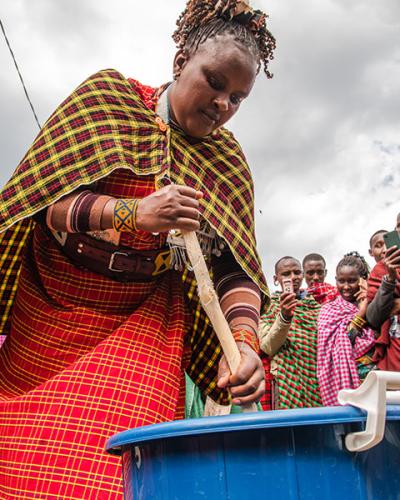
Through COCOBA, women like me can save money for health, education, and our environment. I was able to open a shop and begin building my own house. This independence shows that development and conservation go hand in hand.
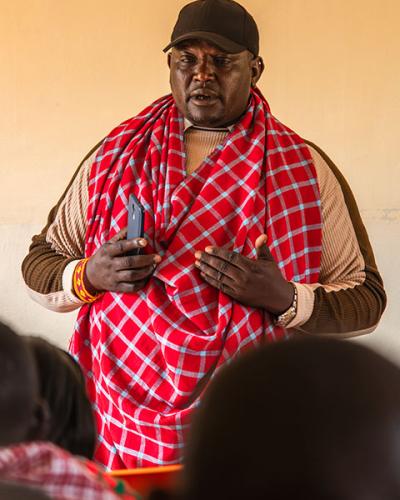
COCOBA has brought development and opportunity for everyone in our village. Young people are learning, women are joining projects, and the whole community is taking part in protecting the environment. We expect even greater progress as more people get involved.
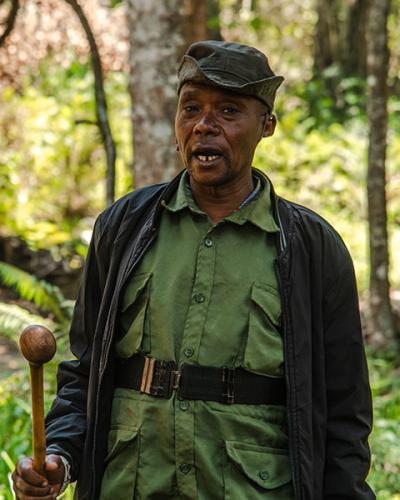
I am proud to protect this forest for future generations. Even my grandchildren will one day say, “our grandfather kept this forest safe”, and now it is our responsibility to continue.

Conservation without community participation is difficult. Through COCOBA, I found an alternative source of income beyond herding or farming. Now I see how protecting the environment can help families like mine reduce poverty and plan for the future.
FZS is an international NGO with a long-term presence in Tanzania. We work in partnership with protected area authorities, local communities, and other organizations to protect key ecosystems like Serengeti, Mahale, and Selous-Nyerere. While we are a global organization, our Tanzania program is locally led, and many of our staff come from the communities where we work.
We are not a government agency and do not make decisions on behalf of the government. We respect Tanzania’s sovereignty and support national conservation priorities through collaboration with local authorities and conservation partners.
At FZS, we understand that lasting conservation outcomes depend on strong local leadership, community ownership, and national frameworks that recognize the rights and knowledge of the people living closest to nature. We are committed to supporting that leadership – not replacing it. Our work is rooted in the belief that effective conservation comes from collaboration.
We recognize that our role as an international organization is specific and limited. We bring technical experience, long-term commitment, and partnership. We aim to create the conditions in which locally driven conservation efforts can thrive. This includes aligning with national strategies, sharing practical tools, and investing in local capacities and systems that can carry conservation forward independently.
Scaling our work does not mean expanding our own footprint. It means contributing to networks of trust, supporting community institutions, and recognizing that conservation expertise exists in both traditional and scientific knowledge systems. We see our role as a supportive one: planting seeds, listening closely, and walking alongside those who will carry the work into the future. Ultimately, conservation must be locally owned, locally led, and locally sustained.
FZS works closely with local communities because protecting nature only works when people are part of the solution. In Tanzania, we help villages plan how to use their land sustainably, support savings groups called Community Conservation Banks (COCOBA), and create jobs through wildlife protection efforts like de-snaring teams. We also help reduce human-wildlife conflict—especially with elephants and lions—by setting up early warning systems and training local response teams. All of this is guided by FZS’s social safeguard policies, which ensure our work respects human rights and is carried out responsibly and transparently.
FZS only works where it is invited and in full consultation with communities and authorities. We do not make decisions on behalf of governments or communities and never support forced evictions. Our activities are guided by clear human rights and IPLC policies, and we are establishing grievance mechanisms to ensure accountability.
FZS works with over 56 villages across the Serengeti, Ngorongoro, Meatu, Bariadi, Tarime, and Bunda districts. Through land use planning and the creation of more than 160 Community Conservation Bank (COCOBA) groups, we support over 4,000 people with access to savings and micro-finance, helping improve household income and resilience. FZS also provides employment through wildlife de-snaring teams and works with communities to reduce human-wildlife conflict and promote coexistence.
FZS supports land-use planning in villages around the Serengeti and elsewhere to help communities manage land sustainably and secure tenure through participatory processes. We do not gazette new protected areas, or decide on restrictions of access. Our work is guided by formal community requests and FZS’s social safeguard policies to ensure it is inclusive and rights-based.
In 2022, FZS released an official statement clarifying that we were not involved in the government’s decision to re-gazette land in Loliondo.
FZS had no role in planning or gazetting the Pololeti Game Reserve. These decisions were made solely by the Government of Tanzania. Our work in Loliondo is based on formal community requests and focuses on improving livelihoods, securing land tenure, and supporting community-led conservation.
In areas where land rights are contested, we have paused our support for land-use planning until concerns are resolved. All FZS activities are guided by our social safeguard policies and a firm commitment to human rights, transparency, and respectful partnerships with local communities.
FZS believes the future of Loliondo must be shaped by dialogue between the people of Loliondo themselves and the government of Tanzania to secure the livelihoods of the community while balancing conservation needs. For over two decades, FZS supported the idea of a community-based management of natural resources – for example a Wildlife Management Area (WMA) – which would have secured stronger land rights and allowed communities to benefit directly from conservation and tourism. While that model was not ultimately adopted by the community authorities, we continue to support community-led initiatives.
Bernhard Grzimek was a pioneer of nature conservation in Germany and Tanzania, raising global awareness for the Serengeti. He passed away in 1987.
FZS recognizes that some of Grzimek’s personal views and statements are outdated by today’s standards. We support independent research into his legacy and are building a public archive of our history – ensuring a critical view of the past and helping us learn from it to shape better conservation today.
Frankfurt Zoological Society (FZS) recognizes that working in sensitive areas requires constant reflection and improvement.
Our work is guided by global human rights and safeguard policies, and we’re currently adapting our Grievance Redress Mechanism to local contexts in Tanzania to strengthen transparency and community feedback.
We maintain regional offices in Arusha, Fort Ikoma, Loliondo, Seronera, Dar es Salaam, Matambwe, Miguruwe, Mahale, and Mpanda. All our offices follow an open-door policy, and we welcome community members to check in with us anytime.
FZS in Tanzania is funded through donations, grants, and partnerships with international donors and conservation agencies. We publish detailed financial information in our annual reports, which are publicly available on our website.
Funding is directed toward priorities identified together with communities and national authorities.
Our work is long-term, Tanzanian-led, and rooted in the communities where we operate. We link conservation with everyday benefits like community savings groups, healthcare, livestock support, and training, ensuring that protecting nature also improves local livelihoods. We believe in balancing community livelihood needs with conservation priorities.






